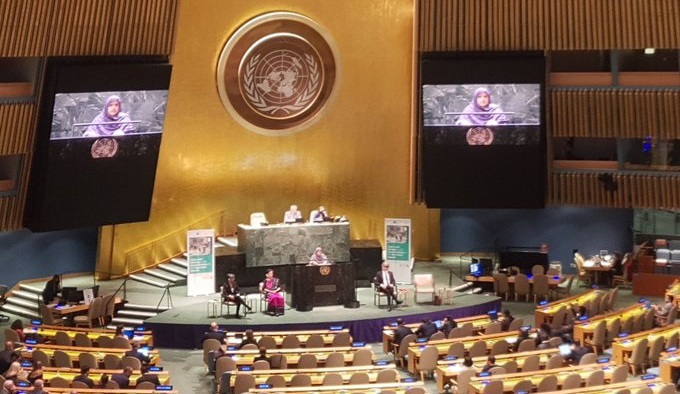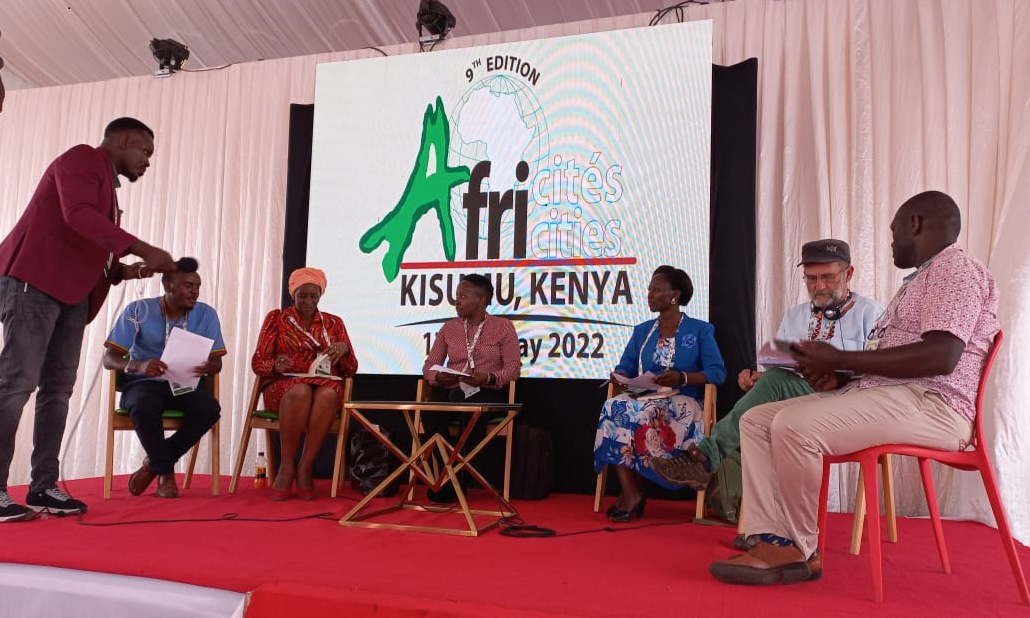Statement by the UN Special Rapporteur on Adequate Housing 3 October 2005 The following statement was issued by the Special Rapporteur of the Commission on Human Rights on adequate housing, Mr. Miloon Kothari, on the occasion of World Habitat Day 2005. The theme chosen by the United Nations for World Habitat Day 2005 is “The Millennium Development Goals and the City,” which serves as a reminder of the enormous efforts needed to ensure that progress is made towards the achievement of the goals agreed upon by the international community and set out in the Millennium Declaration and reaffirmed at the World Summit 2005 held in New York in September. The selection of Jakarta, Indonesia as the centre for this year’s World Habitat Day serves to highlight the enormous devastation and homelessness resulting from the 2004 tsunami. The recent Hurricane Katrina that hit the United States also exposed the lack of disaster-preparedness and failures in state response. Both the Asian tsunami and the Katrina disaster have revealed the grossly inadequate housing and living conditions under which historically marginalized groups, such as the African-American population in the United States and certain indigenous peoples in Indonesia and India have survived for decades. Such events also illustrate the undeniable link between poverty and vulnerability. Natural hazards turn into massive disasters for the vulnerable who are already marginalised in terms of their access to adequate housing, water, sanitation, health, electricity, land and other resources. Furthermore, the inadequate response to such disasters and the lack of consideration for the human rights of the affected creates a human-induced tragedy that exacerbates the plight of those already suffering. Nine months later, tsunami survivors in Sri Lanka and India are still living in inadequate shelters and continue to be denied access to information and participation in planning and decision-making processes related to rehabilitation. This fact highlights the need for human rights based disaster-preparedness and disaster-response policies. Post-disaster relief and long-term rehabilitation and reconstruction must be based on international human rights standards and include mechanisms that ensure transparency and accountability. The survivors’ right to dignity and to adequate conditions of living suggests that access to relief must be recognised as a human right and should guide all rehabilitation efforts. Natural disasters contribute to the global housing and land crisis but human-induced problems cause even more suffering. Around the world, the housing situation in both urban and rural areas continues to be inadequate for the majority of poor and vulnerable groups, and homelessness, including that of women and children, is on the increase. The theme “The Millennium Development Goals (MDGs) and the City,” for this year’s World Habitat Day highlights the agreed target of improving the living conditions of at least 100 million slum dwellers by 2020. The MDGs set targets for States and other actors working towards improved human well-being and should be based on human rights principles and commitments. The attempt to improve living conditions for some, for example through slum-upgrading projects in cities, must not lead to the breach of human rights for others, such as through forced evictions. Mass forced evictions continue to occur across the world. In two striking examples, 400,000 people were evicted from their homes in Mumbai, India between October 2004 and March 2005, and 700,000 people were evicted in Zimbabwe between May and July 2005. For most of these evicted people, resettlement policies are either non-existent or not based on human rights considerations. Moreover, millions of people across the world continue to live with the insecurity of being forcibly evicted. In the city of Jakarta, Indonesia if planned public-private partnership projects are carried out, 1,600,000 people will be evicted from their homes. This is in addition to 64,000 people who have already been evicted over the past five years. The process followed to achieve the MDGs is as important as the agreed targets and needs to be built around the interrelatedness of the MDGs. The goal of improving the lives of at least 100 million slum dwellers by 2020, for example, has to be considered in conjunction with the target of reducing by half the number of people without sustainable access to safe drinking water and sanitation, and other MDGs related to poverty eradication, global partnership and gender equality. Women living in slums have been particularly neglected and priority must be given to the realisation of their human rights to equality, health, sanitation, water, adequate housing, security and freedom from violence. Emphasizing international human rights obligations will also assist in calling attention to the housing needs of rural people. The inadequate housing and homelessness in rural areas, where the overwhelming majority of people in the poorest countries still live, must be urgently addressed. Given the persistent denial of the human right to adequate housing worldwide, it is imperative that States and other involved actors urgently develop initiatives covering both urban and rural areas. Such strategies will have to: The human right to adequate housing is the right of every woman, man, youth and child — in both urban and rural areas — to gain and sustain a secure home and community in which to live in peace and dignity. World Habitat Day is an occasion to reiterate commitments of the international and national community towards guaranteeing this human right. As Special Rapporteur on the right to adequate housing as a component of an adequate standard of living, I stress the importance of these commitments and urge that the principles of non-discrimination, progressive realisation, and indivisibility of human rights frame efforts to achieve the MDGs. The protection of human dignity must remain at the core of every Millennium Development Goal.
on World Habitat Day
Davinder Lamba Appointed Interim Chair of Kenya Human Rights Commission
Kenya Human Rights Commission (KHRC) is a premier Non-Governmental Organization (NGO) established in April 1992 with a mandate of enhancing human rights-centred governance at all levels in the society. [...]


